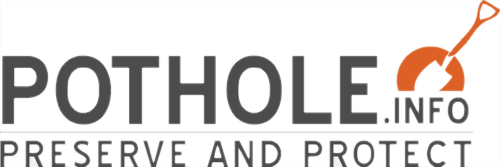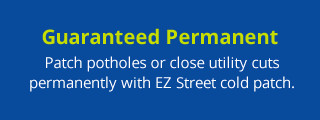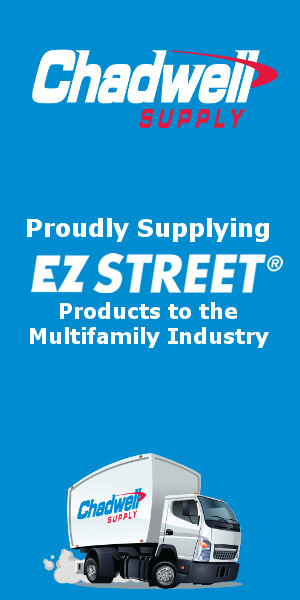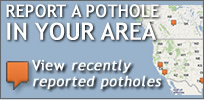Quaker State motor oil recently began a marketing campaign asking consumers “Who has the world’s worst commute?” Forgiving their willful ignorance to include Cambodian motorbikes and Parisian pedi-cabbers, Americans have apparently come forward with some horrific feats of daily strife. Twenty-seven miles in two hours another with forty in three. Ridiculous mileage – years spent motionless in traffic.
In a 2008 survey the worst commute belonged to the city of motorized angles, Los Angeles. These pavement grinders spend the majority of their day wafting smog into their lungs on their way to Universal studios, or in gridlock on their way to greet family members at John Wayne International Airport – an airport named after a man primarily known for riding a horse. Los Angelenos averaged 93 hours a year stuck in traffic.
The third worst commute in the country was the DC-metro area, a bureaucrat-rich web of roads that includes Maryland, Virginia, and parts of West Virginia. Like quicksand commuters the streets tighten their grip on commuters looking to wiggle free, most eventually finding themselves even more delayed and frustrated as they look to escape I-95 and blaze a trail through suburban back roads. Nowhere in the DC Metro area is this type of navigational freestyle visible than on the side streets of Northern Virginia.
Many of the roads now used by commuters to find their way home to dinner are being overused and under repaired. The smaller side roads, originally built for light traffic on weekends are being used as thoroughfares, causing the pavement to gap, rot, and pothole. In Northern Virginia who’s state is wealthy enough for repairs yet large enough to forget precincts, the problem is more pronounced.
Potholes, fissures, and cracks in the road’s surface are being exploited by the expansion experienced in colder winters and warmer summers.
Potholes, fissures, and cracks in the road’s surface are being exploited by the expansion experienced in colder winters and warmer summers. The asphalt on side roads – which cost anywhere from $1 million to $30 million per mile – turns into a crumbled mess when the traffic from Interstate 95 spills onto roads meant for weekend grocery shopping and church Sundays; with tax revenue’s plummeting it’s more difficult to improve the increasingly used, yet historically less- important side roads.
In Fredericksburg, a historic Virginia town 50 miles south of the nation’s capitol, roads have been depreciating for decades. Local commuters complain about water-filled potholes that alligator and split apart. Many of their complaints are in response to the increased traffic that has sputtered south from D.C. and into an ever-expanding urban sprawl.
Population increases in new areas have forced politicians to take note of necessary improvements. Creigh Deeds, the Democratic candidate for Governor of Virginia in 2009 has addressed the issue, as has the Republican opponent, Lt. Gov. Bob McDonnell. Each plans to redirect funding from state coffers into transportation costs, with McDonnell stating on his Web site, “To attract business and jobs to Virginia, we need to make it easier for citizens to get to work, and for goods to get to the market.” Despite federal desires for increased spending in alternative energy sources and transportation options the need for dependable roads has only increased in the Commonwealth, and the next Governor would be well served to take notice – better roads means happier constituents.
For the past ten years northern Virginia’s rapid expansion has caused many in the community to take note of long-term construction projects and their cost. In 1996 when Jim Gilmore, a Richmond Republican, ran for the governor’s office his platform was a simple extension of Reagonomics – decreased spending on non-essential government programs and fewer taxes. To win support for his measures his campaign turned from one of broad political terms to an easy to repeat political slogan, “Eliminate the Car Tax.” In Virginia as in several states around the country, including California, residents were forced to write a check at the end of the year for a small percentage of their cars worth. In some families, this yearly hit could be several thousands of dollars, and as much as American’s hate taxes taken out of their paycheck, they despise writing the check even more. While the Democratic Lt. Governor Don Beyer saw this policy as detrimental to Virginia’s fiscal future and demanded Gilmore show how he planned to balance the budget, voters turned their attention to Gilmore and granted him the Governor’s mansion in a not-that-close election.
Beyer may have been right. Residents of Virginia waited as the vaunted Mixing Bowl – where I-95 meets I-395 and I-495 came (often) crashing together – took almost a decade to construct. Now completed the Springfield skyline is littered with the spaghetti of overpasses, merge lanes and green interstate signs. The financial impact was enormous. At an estimated final cost of $676 million the transportation project meant to keep travelers moving on the highways and avoid using the side roads to avoid traffic, may have helped bust the state budget in 2009. The seven-stage project was completed in July of 2007, but with the population continuing to crawl south, the engineers might have underestimated the number of cars using the freeway, which could result in more mixing bowls, and more $600 million construction projects.
As the road construction costs have mounted in Virginia the state has been forced to make deeper cuts – almost 10 percent across the board with the exception of most education funding. The future health of Virginia roads will depend largely on the taxation of commuters and residents enjoying the roads. With repair costs increasing and family incomes dropping; potholes, cracks and bumpy 30-miles commuted to the office might be bad enough to draw the attention of commuters, politicians and Quaker State alike.
http://www.forbes.com/2006/12/19/worst-commutes-america-biz-cx_ee_1219worstcommutes.html




